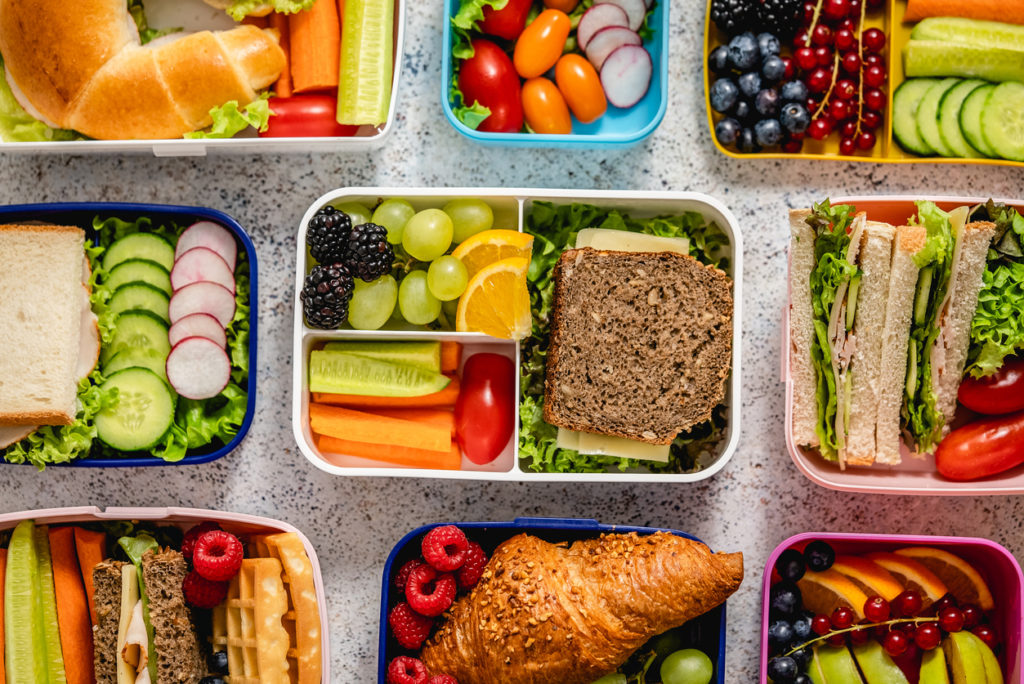
School’s out for summer – and soon, the Brussels bubble will check out too. But not before a slew of new and updated regulations and legislations, impact assessments and more, all have their moment in the sun. Soil, seeds and NGTs, food waste, pesticides and of course the nature restoration law – it’s all coming thick and fast in these heady days. Oliver Moore and Ashley Parsons guide you through the brimming lunchboxes of the Brussels bureaucrats in these final days before summer break. (Updated 11.32 CET on 11/07/23 to include Commission letter on SUR to Council)
Prior to the summer break a flurry of legislative initiatives in the EU have set the stage for a critical moment in agriculture, food and environmental policy. From soil health to seed regulation, the European Commission has proposed a series of measures aimed at addressing the pressing need for a more sustainable approach to agriculture and biodiversity.
In what is an emerging language framing style, what was called the Food and Biodiversity package is now the Sustainable Use of Key Natural Resources package. Everything is always all about sustainability now it seems. Here’s a quick breakdown of, in bite sized bits, of the tastiest morsels.
NGT Regulation – No Go Territory?
The NGT regulation is framed as a way to develop climate-resilient crops and reduce the use of chemical pesticides. It’s been pushed as an ‘if this’ – pesticide reduction – ‘then that’ – new GMOs – by the Commission, as part of the sustainable use of natural resources package.
This was certainly the biggest of the announcements last week – our leaking of an early draft of the regulation has been our most popular article of the year so far.
So what’s up with it? NGO Testbiotech point to concerns about the new Category 1 “of plants derived from New GE (Genetic Engineering) processes which would be exempt from current GMO regulation.”
This is because these plants “would be seen as safe as those derived from conventional breeding. The plants would not be subjected to mandatory risk assessment, they would only require notification. In addition, there would be no labelling requirements for food derived from these plants or a request for methods of detection…If applied, the criteria would lead to New GE plants that are substantially different from those achieved with conventional breeding being classified as equivalent and could be marketed and released without specific controls”
Testbiotech points to the cautionary example of the GABA tomato in Japan, derived using the CRISPR technologies, which despite emerging concerns, would avoid standard risk assessment under the Commission’s proposal, and be classified as equivalent to conventional crops.
Instead the NGO recommends dropping these proposed criteria and continuing with process-based risk assessment for all NGT organisms.
Read testbiotech’s backgrounder here: Testbiotech backgrounder on Category 1 of NGT plants
ARCHE NOAH sees the planned deregulation of new genetic engineering as a further burden for the (GMO-free) conservation of cultivated plant diversity. “Our farmers would be at the mercy of powerful agrochemical corporations like Bayer, BASF, Corteva and Syngenta, which already control more than half of the global seed market.”
For more see these reactions –
And an op-ed from ARC2020 board member Benny Haerlin.
Soil Monitoring Law: Stuck in the Mud?
Once, there was a proposed soil health law. Now there is just a soil monitoring law, with no targets. So what’s a law without targets, exactly?
EU soils are certainly in poor shape, according to the Commission’s background information: “Over 60% of European soils are unhealthy and scientific evidence shows that soils are further degrading due to unsustainable management of the land, sealing, contamination and overexploitation, combined with the impact from climate change and extreme weather events.
Degraded soils reduce the provision of ecosystem services such as food, feed, fibre, timbre, nutrient cycling, carbon sequestration, pest control or water regulation. The loss of these essential soil ecosystem services costs the EU at least 50 billion euro per year.”
There is already an EU soil strategy for 2030, part of the EU Green Deal’s Biodiversity strategy.
In a move that will shock no-one familiar with the EU legislative process, when the rubber hits the road, environmental ambition gets bypassed.
The law will at least help with the gathering of somewhat more consistent and comparable data, as it would put “in place a solid and coherent monitoring framework for all soils across the EU” the commission states.
However critics such as One Planet Business for Biodiversity (OP2B) have expressed disappointment at the “proposal’s restricted scope in providing stronger guidance on sustainable soil management approaches and facilitating coordinated action at the European level” and at the weak “financial component of the proposal to meet the challenges and necessary transition effectively.
Others have complained of the “lack of integration or coordination between soil and water” (EurEau).
The Directive on Soil Monitoring and Resilience (full name, occasionally used) has yet to come before the European Parliament and Council for negotiations. The timeframe of the current (legislative) mandate is extremely tight, and now subject to a summer break and election cycle. And as recent history shows, co-legislator negotiations do many things, but rarely do they increase environmental ambition.
It’s all here, including impact assessments if you fancy some poolside reading.
Wasted opportunity? – Revision of (Food) Waste Directive
Unlike the soil monitoring law, the revision of the waste framework directive does have some targets. It proposes to reduce processing and manufacturing food waste by 10% by 2030. It also has what will surely be difficult-to-enforce targets for household catering and retail food waste reduction by 30% by the end of 2030.
There will be member state flexibilities to deal with the near 60 million tonnes of food wasted each year.
However, the legislation has been criticized by the European Environmental Bureau (EEB) for lacking teeth to effectively slash overproduction and waste in the food sector:
“The EU must establish and attain comprehensive food waste reduction targets of 50% across the entire supply chain, from farm to fork. These targets should encompass primary production, extending beyond the manufacturing, retail, and consumer levels. Anything less than this puts the EU at risk of falling short of its climate goals, international commitments and citizens’ demands.” (Orla Butler, EEB).
Seed Legislation
Seeds, trees and other plant reproductive materials are all part of an attempted update of various laws into two regulations – one on plant reproductive materials, another on forest reproductive materials.
According to the Commission’s explainer on new rules for improved plant and forest reproductive materials – these updated rules will “guarantee” (yes, guarantee) “stable yields by future proofing new plant varieties by testing them for characteristics that can contribute to a more sustainable agri-food production”.
Various other efficiencies will also follow, due to the regularisation of materials, the Commission asserts.
Quoted in Euractiv, many established mainstream agri-food organisations such as the European Landowners Organisation and EU seed industry association Euroseeds expressed some satisfaction at progress.
The revision of seed legislation into a seed regulation proposes lighter rules to register new plant reproductive material (seeds), taking into account local conditions such as the ‘conservation’ varieties.
However, concerns have been expressed that the proposal only allows farmers to exchange their seeds in small quantities and under certain conditions, preventing the creation of public gene banks, private collections, and seed initiatives.
“According to the current draft, they are only allowed to exchange their own seeds in small quantities and under certain conditions. Selling is no longer possible. Public gene banks, private collections and seed initiatives are also no longer allowed to give their seeds to farmers” Arche Noah warns.
The legislative train here will be an interesting one to say the least. Read more ARCHE NOAH concerns here:
EU Seed Law Reform and New Genetic Engineering – Double Attack on our Seeds
Impact Assessment on Sustainable Use of Pesticides – carry on legislating
Coming this week: the impact assessment on SUR/pesticides is being presented. It seems wild that we’ve been reporting on this for more than a year – how far has it moved forward since then?
Well, it appears that it has only moved far enough to get a new, second, impact assessment that essentially confirms what was already known from the previous one – there are general, EU wide data gaps, but fundamentally, there are no major food security concerns.
And the results of the additional impact assessment? “The pesticide goals (set out in the legislative proposal) do not threaten food security.”
More specifically, it:
- Confirms the conclusion of the evaluation and impact assessment that there is a need to revise the Sustainable Use of Pesticides Directive to address important policy issues such as poor and variable implementation across Member States, the lack of national targets and the need to protect sensitive areas.
- Supports the measures set out in the SUR proposal.
- Further reaffirms the objectives of the SUR proposal and the SUR pesticide reduction targets, noting that since the SUR proposal was adopted the EU and all EU Member States have adopted the Kunming-Montreal Global Biodiversity Framework
The document also assets that, from a food and feed availability perspective, there is time to do the necessary pesticide reduction transition by 2030 – “there is a managed transition with time to introduce alternatives and make gradual changes”.
NEW – The Commission’s letter to the Council on the additional Impact Assessment – Commission reply to a Council on the Sustainable use of plant protection products
This of course presumes a will to reduce pesticide use, IPM (Integrated Pest Management) is supposed to be the standard, and it isn’t. Its been resisted many times in many ways, as we’ve shown over the years (e.g. in 2020)
And in 2022, we showed how “the 2009, still in application, pesticide directive already made it mandatory for farmers to apply IPM as of 2014. National Action Plans were to be established to ensure, among other objectives, this enforcement. Despite those rules, the European Court of Auditors reported only limited compliance in Member States, mainly because of a lack of clear criterias to assess and lax CAP conditionalities that are supposed to set up minimal requirements encompassing the IPM principles. In the new CSPs, the problem doesn’t seem to have been resolved.”
Can the CAP Strategic Plans Help in Reaching our Pesticide Reduction Goals?
Emphasis in the impact assessment is placed on the fact that food crops “of limited relevance” to food security are most at risk of yield reductions – tomatoes, grapes, hops – and that the non-food and non-feed sectors can do much of the heavy lifting. Moreover, efficiency improvements (as shown in the “existing variations” between farms, and “precision agriculture techniques”) can further reduce the impact on yields.
Member state flexibilities to distribute the burden around their pesticide-using sectors further adds to the options for avoiding food security impacts.
Regarding the administrative burden on farmers and other users, “an increase in the amount of time and effort they need to spend on paperwork by about 10 hours per year, which could cost around 161-210 EUR per year per farm, including non-wage labor costs and overheads. This can be compared to other paperwork that farmers have to do to follow EU laws and regulations.”
However, even here, “evidence from the impact assessment and the supporting external study suggests that farmers could partially or even fully recoup the cost of advice received from the savings generated by the reduced use of pesticides.”
After all, organic farmers have to spend very little time filling in forms about pesticides.
There are quite a few references to the need for more harmonised and more granular data, to help with the legislative and implementation process, and the role of member states in providing this. The implication here is that the SUR can help with harmonising the data, thereby making everyone’s job easier.
For more see the full Impact assessment here: pesticides_sup_commission-response_art-241
Green MEP Sarah Weiner said in a statement that there is “no reason for the Christian Democrats [the EPP group] and the member states to block progress on the SUR,” now that the data confirms (again) that there is no food security risk.
Conclusion
While the EU’s proposed initiatives show a commitment to addressing the pressing need for a more sustainable approach to agriculture and biodiversity, they also show how much environmental ambition is modified, stymied and sidetracked as the political process unfolds.
Most of the above will be subject to the co-legislators – the Parliament and Council – making adjustments in the months after the summer -provided MEPs aren’t in full re-election mode.
While in some cases member state flexibilities make sense and add necessary nuance, more often what we see is the influence of the 25,000+ lobbyists operating in the Brussels milieu, and thus obfuscation, delay, mendaciously sown confusion, and a fundamental failure to grasp the or grapple with the scale of the biodiversity and climate crises.
That said, there is a clear need for these changes to be conducted within a properly resourced just transition framework. This should be where the co-legislators bring their heft – too often, this is lacking.
Nowhere has this been clearer than in the EPP’s dalliances with parties further to its right, its embracement of culture wars and misdirection via meme and misleading press conference, all while operationalising new shady MEP substitution practices at Committee level, and attempts to scupper the standard path legislation takes.
The Nature Restoration Law vote this week in Strasbourg, in many ways the apex of ambition with flexibility and finance, will in many ways define the ability of the EU institutions to work together to make any sort of meaningful progress in the fact of the objective threats to the living world.
More
ENVI Committee Votes Down Nature Restoration Law Report – what happened and what’s next?
Big Step Forward for Nature Restoration Law – Council of Ministers Agrees its Position
Nature Restoration Law | No, 10% of land will NOT be abandoned under NRL
CAP Environmental Derogations: What is the Impact on Food Security?





